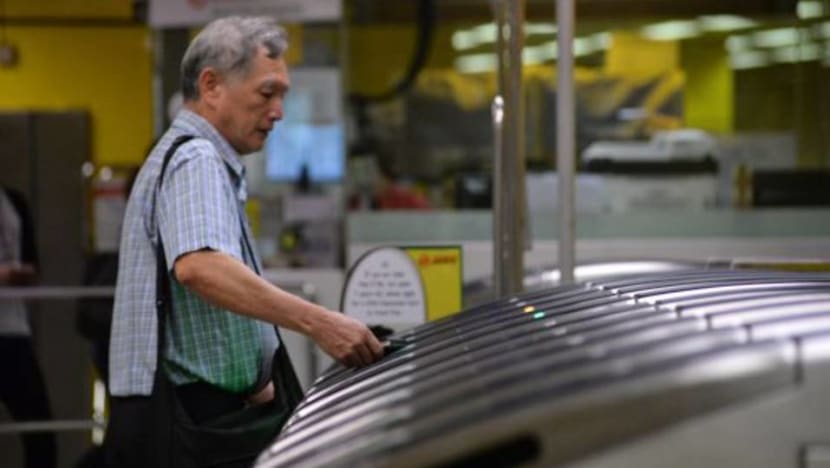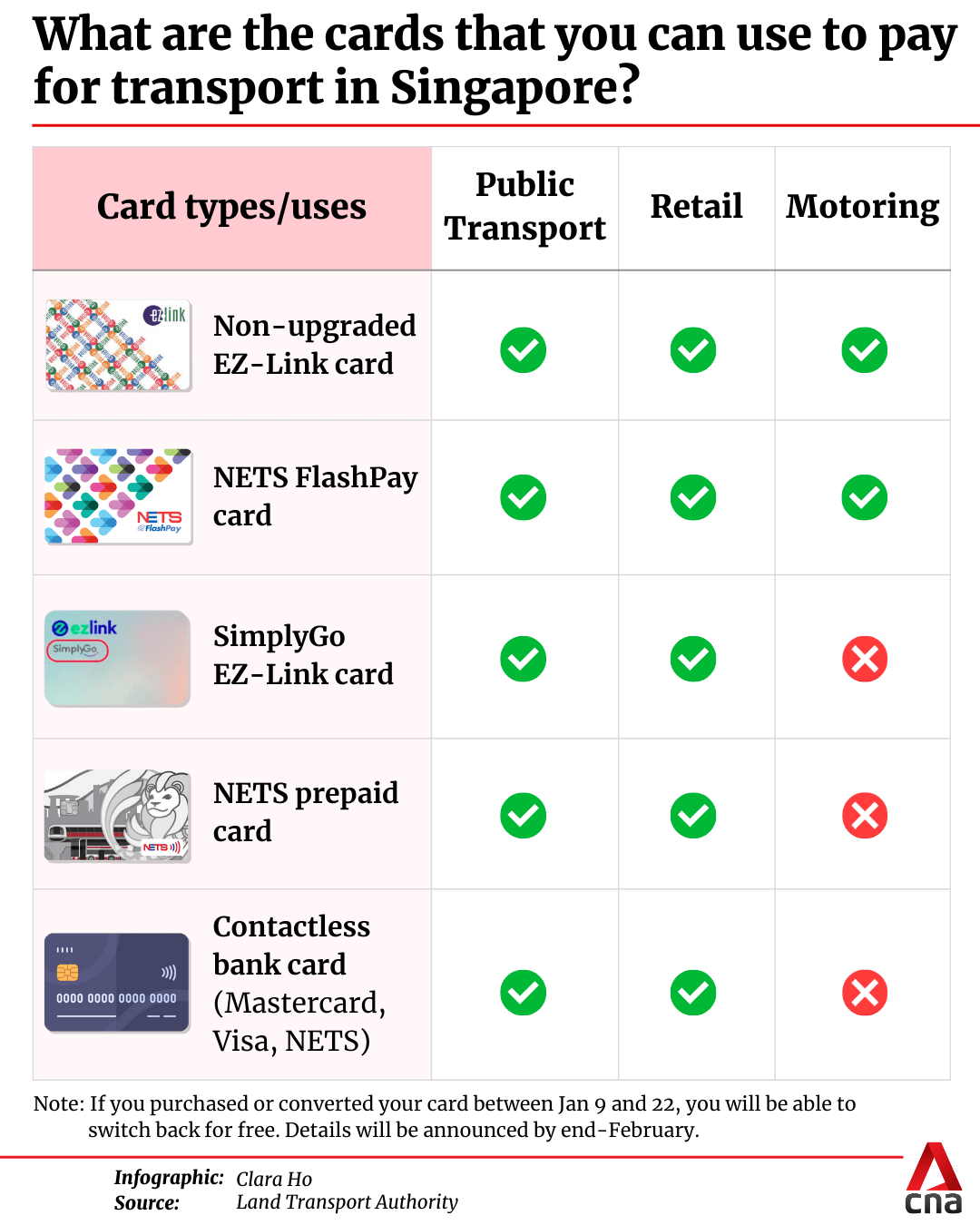Commentary: LTA reversal on EZ-Link phase out is a reminder that systems should serve people
People in Singapore expect more than a tech upgrade that feels like a step back in user experience. Forcing commuters onto SimplyGo would have been a step in the wrong direction, say NUS Business School’s Emir Hrnjic and Monetics’ Gordon R Clarke.


This audio is generated by an AI tool.
SINGAPORE: Just two weeks after it announced that adult EZ-Link cards and NETS FlashPay cards were to be phased out in favour of the SimplyGo platform for public transport, the Land Transport Authority (LTA) walked back its decision on Monday (Jan 22).
The replacement of legacy stored value cards, initially planned for Jun 1, caused a public uproar about whether it was necessary to change a system that was not broken. It didn’t help that the platform’s name lent itself well to memes and jibes online – it was “SimplyNo” for many.
Commuters were unhappy at not being able to view the fare charged or card balance at the point of transaction with SimplyGo. LTA quickly explained that SimplyGo’s transactions are handled on the backend, compared to the legacy card transactions which are processed directly at the card readers. Displaying such information would cause a longer processing time and a “slow down (in) the entry and exit for commuters”.
Indeed, people in Singapore have come to expect more from a Smart Nation, not a technical change that felt like a step back. What went wrong, what led to such a dramatic reversal, and what we can learn from this debacle?
SYSTEMS SHOULD SERVE PEOPLE
It is unusual for a government agency to introduce changes that create new challenges instead of addressing existing ones. After all, systems should serve people – and not the other way around.
In the two weeks between announcement and reversal, citizens wondered why there was a need to cease the existing ticketing system when it worked perfectly well to accommodate both legacy EZ-link cards and SimplyGo, and could be used for public transport, retail payments and motoring needs.
Why rely solely on a new system that would impose a less user-friendly experience? And why would the government ask the public to accept a compromise instead of working on an actual upgrade?

A one-size-fits-all approach may not suit everyone. According to LTA, around two-thirds of adult card fares already use SimplyGo, which means the legacy system and its distinct features still appeal to commuters who make up the rest.
Many of the commercial issues that usually drive system changes should not apply in a public service context. For example, operating cost is important and speaks to discipline in public spending, but it should not overshadow other considerations such as ease of use and cost to the user.
In this case, displaying a low balance on a stored value or pre-paid card would indicate to the commuter that a top-up will soon be required, and could even be critical to those with tight finances. With SimplyGo, an insufficient balance is met only with a “card failed” message.
It’s puzzling when we see that the government does accommodate different groups in other areas. Households can redeem their Community Development Council (CDC) vouchers digitally via Singpass or collect physical vouchers at community centres, for example.
TECHNOLOGY AND HUMAN PSYCHOLOGY
While people will always have to evolve with technology, it is imperative that the authorities do not alienate people from the merits of a promising vision like the Smart Nation by disregarding human psychology when implementing changes.
It is implied that the proposed transition to SimplyGo for adult commuters is a data-driven decision. LTA said that there is “growing adoption” of SimplyGo and that it carried out market testing and focus group discussions.But customers are notoriously conservative in terms of payment behaviour. Even something as ubiquitous today as QR code payments took a long time to become mainstream.
Once they become accustomed to a certain mode of payment, they are loath to change as it means wasting precious time learning something new, as well as subjecting to potential public embarrassment at the point of sale if their payment is unsuccessful.
Users are likely to oppose change unless they perceive clear and meaningful benefits. For example, the initial introduction of stored-value tickets on the MRT provided an obvious and huge benefit to the public and was quickly adopted by customers.
The argument that two-thirds of adult fare transactions use SimplyGo ignores the people who make up the remaining one-third. Singapore’s endeavour to becoming a Smart Nation will be compromised if a segment of the population perceives themselves as being progressively excluded, such as older folks who are not using concession cards but who may not be tech-savvy enough to manage their fares with an app.
MISCOMMUNICATION AND LACK OF FORESIGHT
Yet, highlighting the benefits of a new system isn’t sufficient to win over legacy users. LTA’s transition announcement focused on promoting the advantages of SimplyGo: On-the-go viewing of fare history, card top-ups with their mobile phones, and the option to block lost cards remotely and prevent unauthorised transactions.
However, they failed to clarify why the legacy system will cease to exist and what the advantages are in doing so. This likely contributed to the public backlash.
What does it mean to a layperson that the legacy system was “nearing the end of its operational lifespan”? If people were told that it would cost an additional S$40 million to keep the old system running, might more have agreed with the move? Would it be worth this reduction in convenience?
Even if public uproar has led to a policy reversal after an unnecessary step in the wrong direction, the entire SimplyGo debacle reflects a lack of strategy and user-centricity.
In a Smart Nation, it should not be too much to ask that technological advancements meet the expectations and needs of the public.
Emir Hrnjic is Academic Director of UCLA-NUS Executive MBA, NUS Business School, and Head of FinTech Training, Asian Institute of Digital Finance, National University of Singapore (NUS). Gordon R Clarke is Managing Director of Monetics, a Singapore-based payments consulting firm.





















